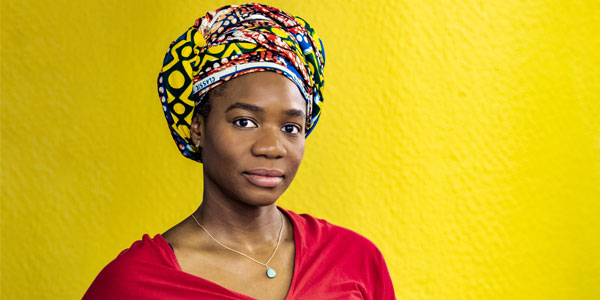The mouth of a shark
- Adanma Yisa
COLUMN: Adanma Yisa shares her journey of being an African researcher in Africa today, but raised and educated in the Global North.

Leaving Africa for Europe was a common sense decision for my parents – it was most likely a desire. My parents were born in Nigeria and relocated to England where I was born, raised and completed a significant part of my education.
The way in which Africa was returned to Africans and the subsequent relationship they have to their irrevocably altered home has resulted in a seemingly commonplace and natural desire for Africans to leave for the West. Reflecting on the question of home, British-Somalian poet, Warsan Shire, offers this: “No one leaves home unless home is the mouth of a shark”.
The implications of my being an African researcher in Africa, but raised and educated in the Global North has caused me some anxiety. I am always fearful of being the middle class black woman making the odd excursion to rural areas for sound bites that enrich my academic career, yet create no real change for the women on whose life my work is supposedly focused.
An African academic from England
Insights from African gender theorists were important considerations for me when conducting my Master’s research that centred on interviews with black South African women. These theorists have problematised the intellectual dislocation and geographical location of those who theorise the experiences of African women from a diasporan perspective (a diaspora being a scattered population whose origin lies in a separate geographic locale).
They question how African gender theorists based in or raised in the West and with divergent socioeconomic positionalities to the women they write about can really provide relevant research. Worse, and my own greatest fear, the work of African disaporan researchers is deemed patronising due to this issue of relevance.
African diasporan researchers like me have to acknowledge that our experiences mean we are not simply African researchers theorising about our own people. Growing up or being educated abroad makes us different. To confront the issues of relevance, I designed my research so that the women I interviewed had protagonist status. I used a critical narrative interview style that allowed participants to tell and reflect on their own life stories. I also found keeping a reflexivity journal an important element of conducting research from a contested positionality. Reflexivity is a sociological concept referring to an act of self-reference where examination or action “bends back on”, refers to, and affects the entity instigating the action or examination.
My journal included notes on the embarrassment I felt around asking for translations and the way that confessional narratives made me reflect on my own similar experiences. More generally, I have found the concept of a “pedagogy of discomfort”, suggested by education academics Megan Boler and Michalinos Zembylas, helpful. Encounters with issues relating to power, oppression and belonging that cause uneasiness are an opportunity to examine how one has learned to perceive themselves and others.

The contested nature of home
Anxiety about my positionality goes beyond my academic research. Home is a question that can brutally assault my sense of identity and belonging. Growing up in England, I was constantly confronted with the contested nature of home. I still am. At school, I learned about World War II and my peers saw images of the stories that they had heard from grandparents; stories that were foreign to me.
Interestingly, later in life I would find out that as a resident of the Empire, my grandfather was stationed in Burma (modern day Myanmar) during World War II. Aunties would laugh at my inability to speak Igbo and gasp when I explained I had only visited Nigeria once as a toddler.
There was always the question of whom I supported in the World Cup (it used to be Nigeria, but now I support Nigeria, England, and South Africa). And, of course, there was the hair… Do you do your braids every morning (all 80 of them!)? Do you wash your hair? Why can’t you get your hair wet? Can I touch your hair? Endless!
Colonialism – the imposition, the extraction, the indignity – transformed home for so many of us. It led my parents to leave Nigeria in search of a better life. Whether England really offers a better life than Nigeria is a difficult question for colonial subjects, such as my parents, to answer. My father and I have been having the same argument over the last ten years about whether Africa’s underdevelopment is rooted in the African or the colonial abuse of Africa. The interlinking systems of racism, patriarchy, neo-colonialism and capitalism have skewered perceptions in a way that makes England seem almost unquestionably better than Nigeria. In the words of my father, Nigeria is a “bloody nonsense country” and I am a fool for not cherishing being raised in a place “where things work”.
Decolonising ‘common sense’
England being better than Nigeria ceases to become a question; it becomes a common sense understanding. The thing about common sense understandings – like the notion that England is better than Nigeria – is that they maintain unequal relationships of power. The consistent drain of Africans to Europe and North America serves the interests of the West. It is a loss to the continent and an increase in resources to imperial power. It means Africa will always be a problem in relation to the West. An important part of challenging power is unpacking taken-for-granted norms. This is why interrogating common sense is an important part of my research, and the reason my father and I will continue our argument for the next ten years.
My upbringing has fed into my positionality. I am both Nigerian and British and both come with a range of associations that I embody. This is why the work of reflexivity is so important to me. Reflecting on the how, what and why of what I do will be a continuous part of my journey as a researcher. Positionalities are a crucial consideration when understanding and digesting research and African research is littered with thinkers who find home a complex question to answer.
In reckoning with the task of decolonising knowledge, the issue of who writes and where they write from is something to which we must pay close attention. My dedication to the decolonisation project means continually grappling with the question of home. It means gazing into the mouth of a shark.
- Adanma Yisa is the External Relations Manager in the School of Law.
- This article first appeared in Curiosity, a research magazine produced by Wits Communications and the Research Office.
- Read more in the seventh issue, themed: #Ekhaya (isiZulu for ‘home’) about our homegrown research that crosses borders and explore the physical spaces we inhabit, where we feel we belong, where we’re from and what we identify with, including the physical/psychological space we may return to – or reject.

